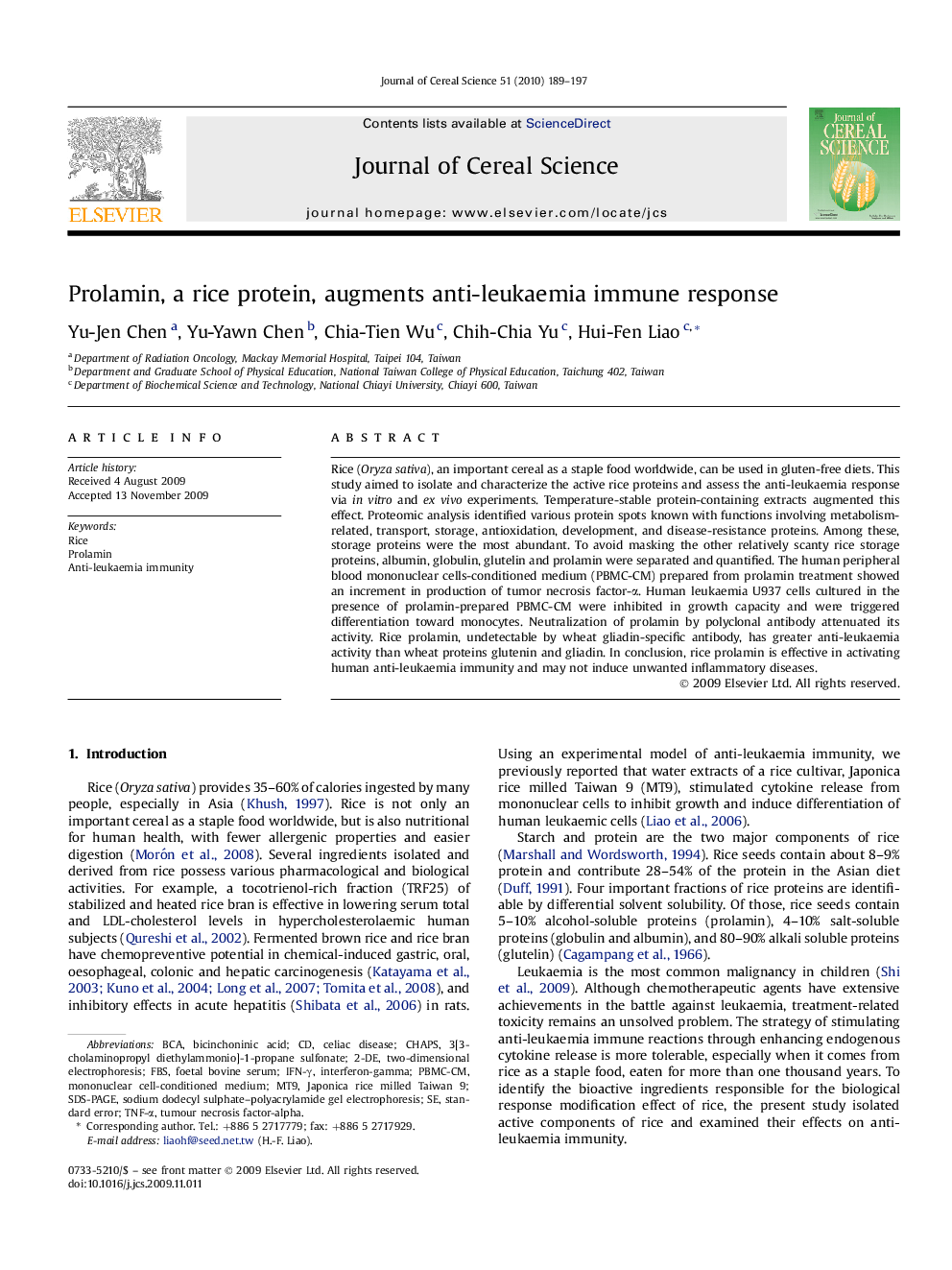| Article ID | Journal | Published Year | Pages | File Type |
|---|---|---|---|---|
| 4516160 | Journal of Cereal Science | 2010 | 9 Pages |
Rice (Oryza sativa), an important cereal as a staple food worldwide, can be used in gluten-free diets. This study aimed to isolate and characterize the active rice proteins and assess the anti-leukaemia response via in vitro and ex vivo experiments. Temperature-stable protein-containing extracts augmented this effect. Proteomic analysis identified various protein spots known with functions involving metabolism-related, transport, storage, antioxidation, development, and disease-resistance proteins. Among these, storage proteins were the most abundant. To avoid masking the other relatively scanty rice storage proteins, albumin, globulin, glutelin and prolamin were separated and quantified. The human peripheral blood mononuclear cells-conditioned medium (PBMC-CM) prepared from prolamin treatment showed an increment in production of tumor necrosis factor-α. Human leukaemia U937 cells cultured in the presence of prolamin-prepared PBMC-CM were inhibited in growth capacity and were triggered differentiation toward monocytes. Neutralization of prolamin by polyclonal antibody attenuated its activity. Rice prolamin, undetectable by wheat gliadin-specific antibody, has greater anti-leukaemia activity than wheat proteins glutenin and gliadin. In conclusion, rice prolamin is effective in activating human anti-leukaemia immunity and may not induce unwanted inflammatory diseases.
